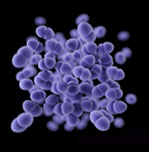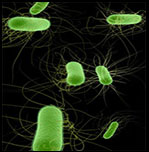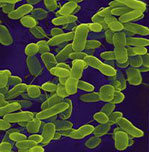Recreational Water Illness (RWI)
Recreational water illnesses (RWIs) are caused by pathogens found in recreational waters such as a swimming pool, river, lake and ocean. These bodies of water may contain RWIs and could be spread by having contact with the contaminated water or swallowing it.
What are the symptoms of RWIs?
The most common symptom of RWI is diarrhea (could be bloody) but are also associated with stomach cramps, vomiting, weight loss, loss of appetite and fever. Other symptoms can cause skin, ear, eye, neurologic, or respiratory symptoms.
Bacteria Indicators
There are three bacteria indicators that the OWQMP monitor throughout the Ventura County coastline: Enterococcus Total coliform, and Fecal coliform.
What are Enterococcus Bacteria?
Enterococcus are bacteria indicators that flourish in the intestinal tracts of humans and other warm-blooded animals. The presence of fecal waste in the ocean can indicate a possible water contamination. Sources include wastewater treatment plants, inoperable septic systems, stormwater runoffs, sewage discharged from cruise ships or small boats, and feedlots.
What are Total Coliform Bacteria?
Total coliform are bacteria indicators that come from the feces of humans and animals. They are commonly found in the environment (soil or vegetation) and typically do not cause any illness. If there is an exceedance of total coliform found in the ocean, there is a likelihood that other disease-causing strains of bacteria, viruses and protozoa are present.
What are Fecal Coliform Bacteria?
To report an ocean water related illness, please fill out the Waterborne Illness Report Form and send it to the Ventura County Public Health (VCPH), Communicable Disease Agency via fax, email or mail. For further questions, contact VCPH, Communicable Disease office at (805) 981-5201.
Pathogens that may be found in ocean waters contaminated with sewage and possibly in runoff during or after a rain event:
| Pathogenic Agent | Symptoms |
|---|---|
| E. coli | Gastroenteritis |
| Salmonella typhi | Typhoid fever |
| Other salmonella species | Various enteric fevers, gastroenteritis, septicemia |
| Shigella dysenteriae | Bacterial dysentery |
| Vibrio cholera | Cholera |
| Cryptosporidium | Diarrhea – Cryptosporidiosis |
| Giardia lamblia | Diarrhea – Giardiasis |
| Rotavirus | Gastroenteritis |
| Norwalkvirus | Gastroenteritis |
| Coxsackievirus | Various, including severe respiratory disease, fevers, rashes, paralysis, aseptic meningitis, myocarditis |
| Adenovirus | Respiratory and gastrointestinal infections |
| Poliovirus | Poliomyelitis |
| Hepatitis A | Infectious hepatitis (liver malfunction), also may affect kidneys and spleen |
| Staphylococcus aureus (MRSA) | Fever and skin infection: red, swollen, painful, warm to the touch, full of pus or other drainage |




